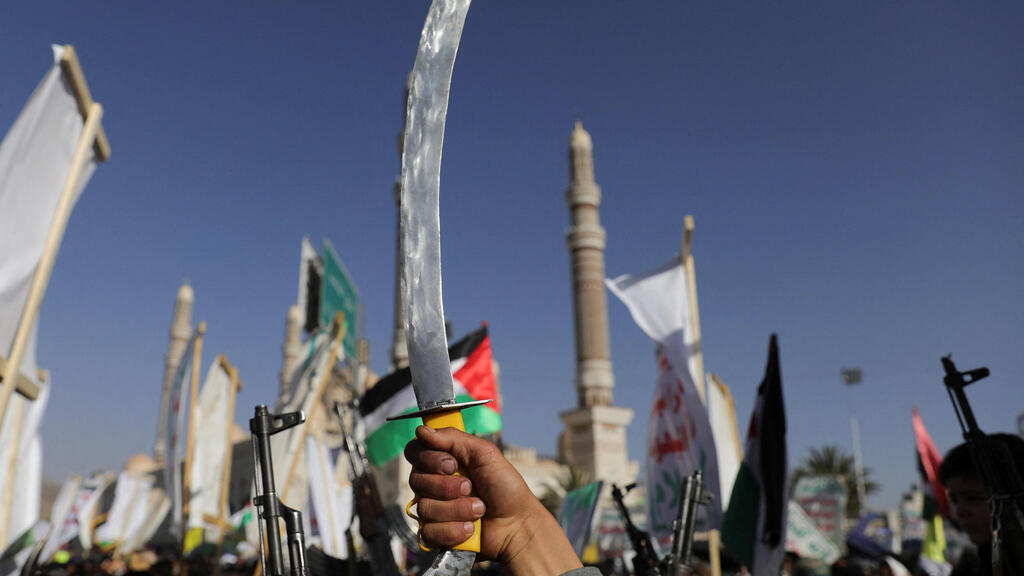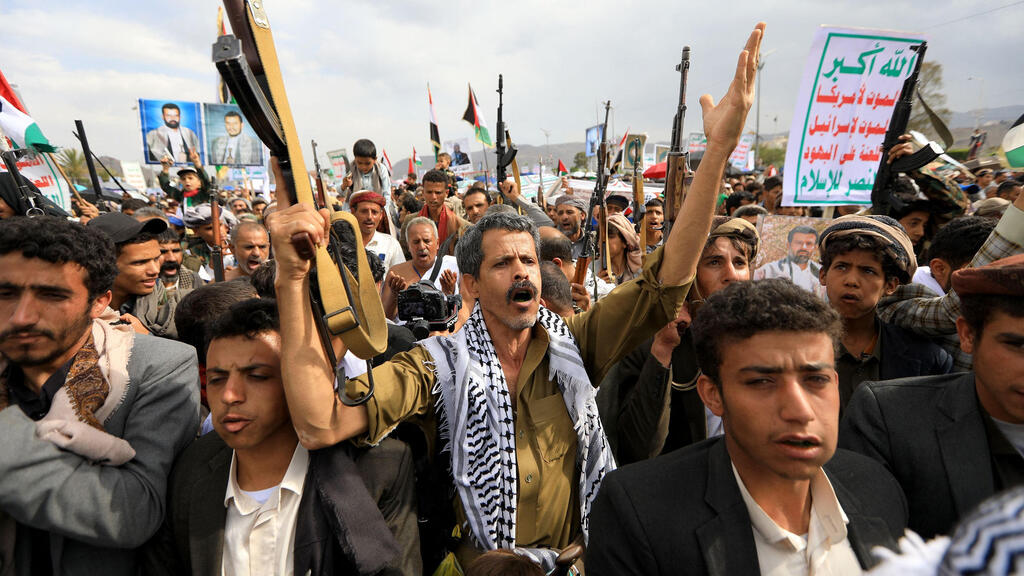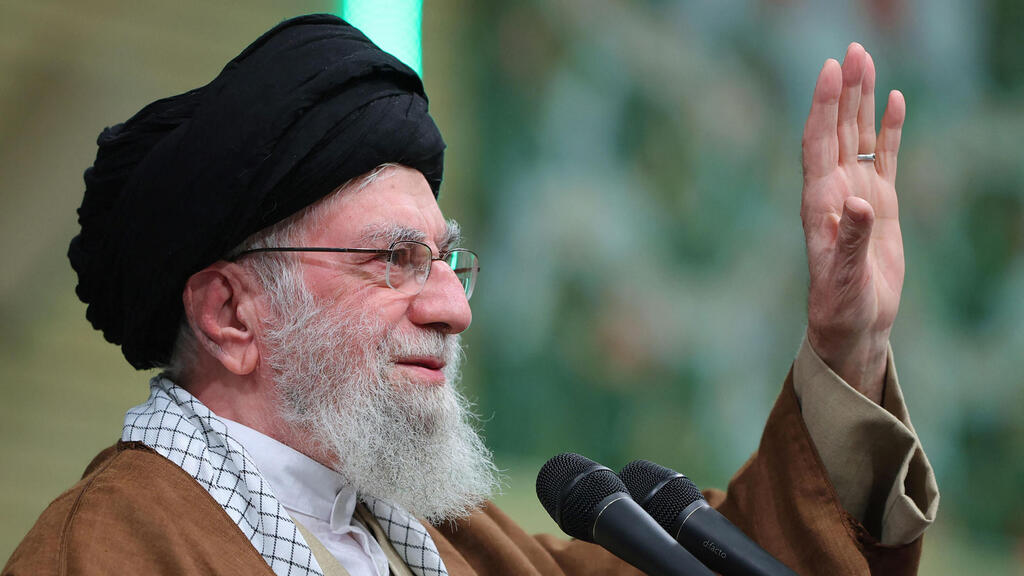Getting your Trinity Audio player ready...
After intense clashes with Hamas in Gaza and Hezbollah in Lebanon, we're left, for now, with one stubborn and undefeated terror organization: Yemen’s Houthis. Showing solidarity with Hamas and continuing to revere Hassan Nasrallah, the Houthis refuse to back down.
The U.S. and its anti-Houthi international coalition continue bombing Yemen, but these actions seem neither to deter the Houthis nor to disrupt their plans. Israel has likewise struck the Houthis in Yemen at least four times and Defense Minister Israel Katz has vowed to target their leader, Abdul-Malik al-Houthi.
It's important to understand that, while the Houthis attack commercial ships in the Bab al-Mandab Strait and launch missiles and drones toward Israel from their port, they aren't based in the immediate vicinity of these strikes.
Even though their troop count is unclear, it is estimated at 150,000 to 250,000 within Yemen’s population of 34.5 million. The Houthis, along with Yemeni Shiites and Sunnis are all known for their hostility toward Israel.
Now, both Israel, Iran and Sanaa await the inauguration of U.S. Preside-elect Donald Trump. It’s likely that the new U.S. administration is already poring over Gulf maps, planning a severe offensive against the Houthis
The Houthis excel in long-range operations using Iranian-made missiles and advanced UAVs. Interestingly, senior Israeli Air Force officers have reportedly been advised to "engage with the Houthis as little as possible" and let the Americans and their coalition handle them. Why? The Houthis are increasingly revealed as a unique and unconventional terror organization.
The Houthis' strikes on Israel appear to be becoming more frequent. They've launched missiles or UAVs at least eight times since early December. Israel promptly responded with precise strikes on targets in the capital Sanaa, while the U.S. carried out parallel attacks. Yet the Houthis vowed to continue their assaults until Israel halts its operations in Gaza.
The Houthis' strikes on Israel appear to be becoming more frequent.
Yemen is the poorest country in the Middle East. Images of starving populations and children dying from infectious diseases, primarily plague and polio, are harrowing. Aid shipments arrive rarely by sea and hospitals have run out of medicine, forcing Yemenis to rely on volunteers in makeshift clinics.
So far, Israeli strikes on Houthi military bases and targets in Yemen have not inflicted significant defeats on their leadership. Abdul-Malik al-Houthi and Houthi spokesperson Yahya Saree, in their bizarre, pompous appearances, continue to issue direct threats against the U.S., the UK and especially Israel.
Until a full cease-fire is achieved in Gaza, Iran is expected to keep supplying the Houthis not only with weapons and military equipment but also with directives to persist in their attacks on Israel.
Another element to consider is this: The Houthis are far more distant from Israel than Hamas in Gaza or Hezbollah in Lebanon – about 1,500 kilometers (932 miles) away. Unlike Lebanon or Gaza, Yemen spans a vast area and Israel has no prior experience with prolonged operations in the Gulf involving long flight times and unfamiliar terrain.
Prime Minister Benjamin Netanyahu last week vowed that the Houthis would pay a heavy price for their attacks. Katz went even further with his threats. Yet Al-Houthi doesn’t seem fazed.
Get the Ynetnews app on your smartphone: Google Play: https://bit.ly/4eJ37pE | Apple App Store: https://bit.ly/3ZL7iNv
Now, Israel, Iran and Sanaa await the inauguration of U.S. Preside-elect Donald Trump. It’s likely that the new U.S. administration is already poring over Gulf maps, planning a severe offensive against the Houthis with a strong message to Iran and open support for Israel.
The Houthis, as their statements imply, are preparing, recruiting and stay undeterred. Elizabeth Kendall, a leading American expert on Yemen, summed up the situation succinctly: "The biggest dilemma is that it looks impossible to influence the Houthis without military pressure, but it’s hard to see how military pressure can work.”





